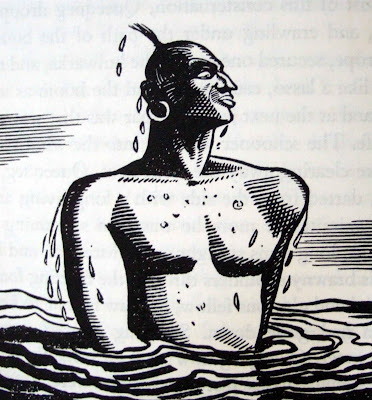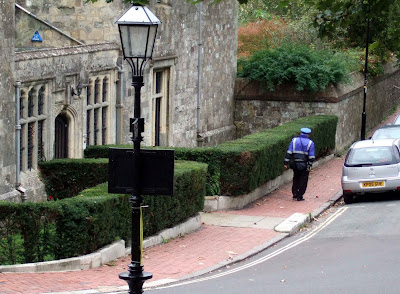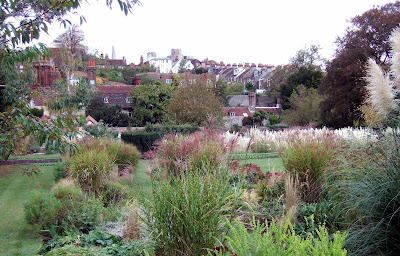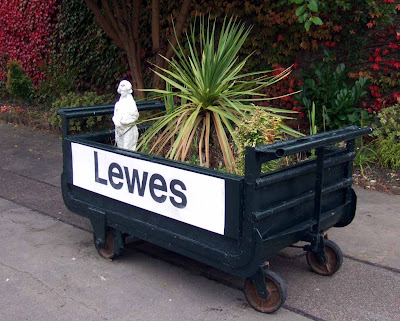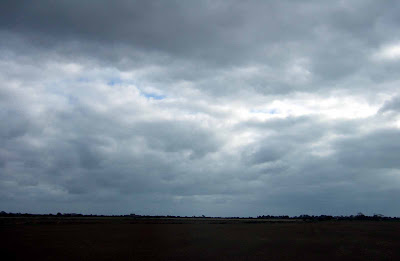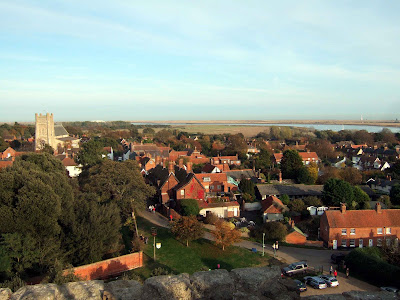 Once a bustling medieval seaport, now a sleepy coastal village at the end of an empty, 12-mile road, Orford appears to be an unspoilt relic of an England that died long ago.
Once a bustling medieval seaport, now a sleepy coastal village at the end of an empty, 12-mile road, Orford appears to be an unspoilt relic of an England that died long ago.
There are no adverts, chain stores or grafitti and apart from the occasional car, the only noises to be heard are the cries of gulls and curlews. A good place to set a murder mystery.
Overlooking the village is the keep of the 12th century Orford Castle:
 I have no idea why some castles seem to attract coachloads of visitors whilst others are virtully empty, but I'm grateful that there are places where it's still possible to be alone.
I have no idea why some castles seem to attract coachloads of visitors whilst others are virtully empty, but I'm grateful that there are places where it's still possible to be alone.
I don't believe in the supernatural, but I was intrigued by an argument that ancient buildings are like magnetic tape, resonating with echoes of previous inhabitants. It's nonsense, I'm sure, but it feels true.
The ticket office was staffed by a man who apeared to have taken his inspiration from Uriah Heep, with a manner that was superficially obsequious, but with an underlying menace. He was quietly insistent that I should take advantage of the free audio tour, but I wanted to enjoy the silence.

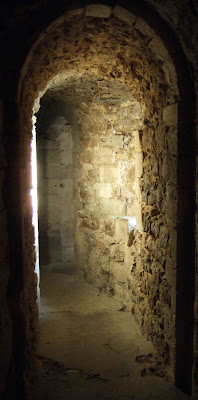
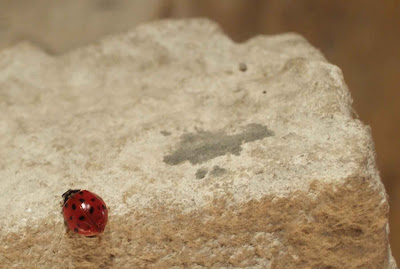
 At the top of the castle, there is a wonderful panoramic view of Orford and the surrounding area. I felt like Roger Livesey in 'A Matter of Life and Death', looking down at the village in his camera obscura.
At the top of the castle, there is a wonderful panoramic view of Orford and the surrounding area. I felt like Roger Livesey in 'A Matter of Life and Death', looking down at the village in his camera obscura.
Free from the usual roar of traffic, I could hear almost everything, from the footsteps of someone walking through the village square to the slow scraping of a boat being dragged by hand across shingle.
Landscapes may be regarded as a symbol of permanance in an ephemeral world, but the view from the castle would have been completely different when Eleanor of Aquitaine began the voyage to ransom her son, Richard the Lionheart.
It is thought that Orford Ness, a long spit of land that separates the village from the sea, didn't exist in medieval times. Today, the only way of reaching open waters is to turn right, out of the port and sail for several miles.
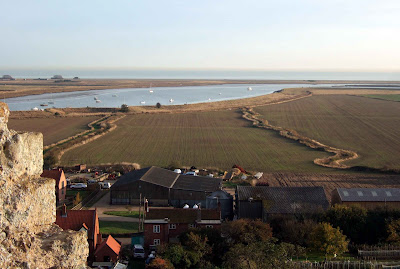

 A few miles north is Aldeburgh (pronounced Awlbruh), where Benjamin Britten established the famous music festival. The concert hall at Snape Maltings attracts world class artists and during the Aldeburgh Festival, it feels as if most of the cognoscenti have decamped to Suffolk.
A few miles north is Aldeburgh (pronounced Awlbruh), where Benjamin Britten established the famous music festival. The concert hall at Snape Maltings attracts world class artists and during the Aldeburgh Festival, it feels as if most of the cognoscenti have decamped to Suffolk.
As journalist Stephen McClarence recently wrote:
A MAN in baggy knee-length shorts and canvas shoes is scolding a small boy in sailor-striped T-shirt. “Toby, do behave,” he snaps, brandishing a baguette. “And where on earth has Bertie got to?” Aldeburgh, on the Suffolk coast, is no place for hoi polloi or honky-tonk. Never has been. Even before it became a “Cultural Village of Europe”, even before its annual festival gave it cultural kudos, there was broad consensus about its upmarket appeal.
A half-timbered kiosk on the seafront serves café latte. The gift shops stock designer bath caps at £15 a throw. And at weekends, metropolitan holiday-homers turn the place into Boden-on-Sea, the social embodiment of smart-casual.
This is Umbria-in-Anglia, with prawn-pink and pale-primrose holiday cottages rented out at up to £1,600 a week. Hollyhocks in the gardens, dried starfish and model lighthouses in the front windows, bicycles with wicker baskets propped up against the fences.
On dull days, when the sea is a melancholy browny-grey, it’s a place to read P. D. James and listen to Test Match Special, and watch Ayckbourn or Wilde at the Jubilee Hall summer theatre.
“They’re all lords and ladies here, all Captains and Sirs,” says a shop assistant. “Don’t get me wrong, they’re lovely people, but they’re the only ones who can afford to live here.”
There were a few fishermen down by the quay who commented on what a "Boo'ful evenin'" it was, but they seemed like extras in a play that was populated by an almost exclusively middle class cast. If Orford seems frozen in time, that may be because the average age of its citizens is several decades older than the national average. During my visit, two days ago, almost everyone I saw was white, middle class and over 50.
The Jolly Sailor pub seemed traditional enough, but my lunch was served by a slightly scary eastern European girl who barked "Fiss? Fiss? Fiss?" until I nodded my ascent. What had happened to the locals?
I don't blame people for wanting to live in an episode of Midsomer Murders, but I'm glad that Lewes is still a working town with a broad social mix (albeit heavily weighted towards graduates). Orford was beautiful, but it felt like a gated community and given the house prices, it effectively was.



